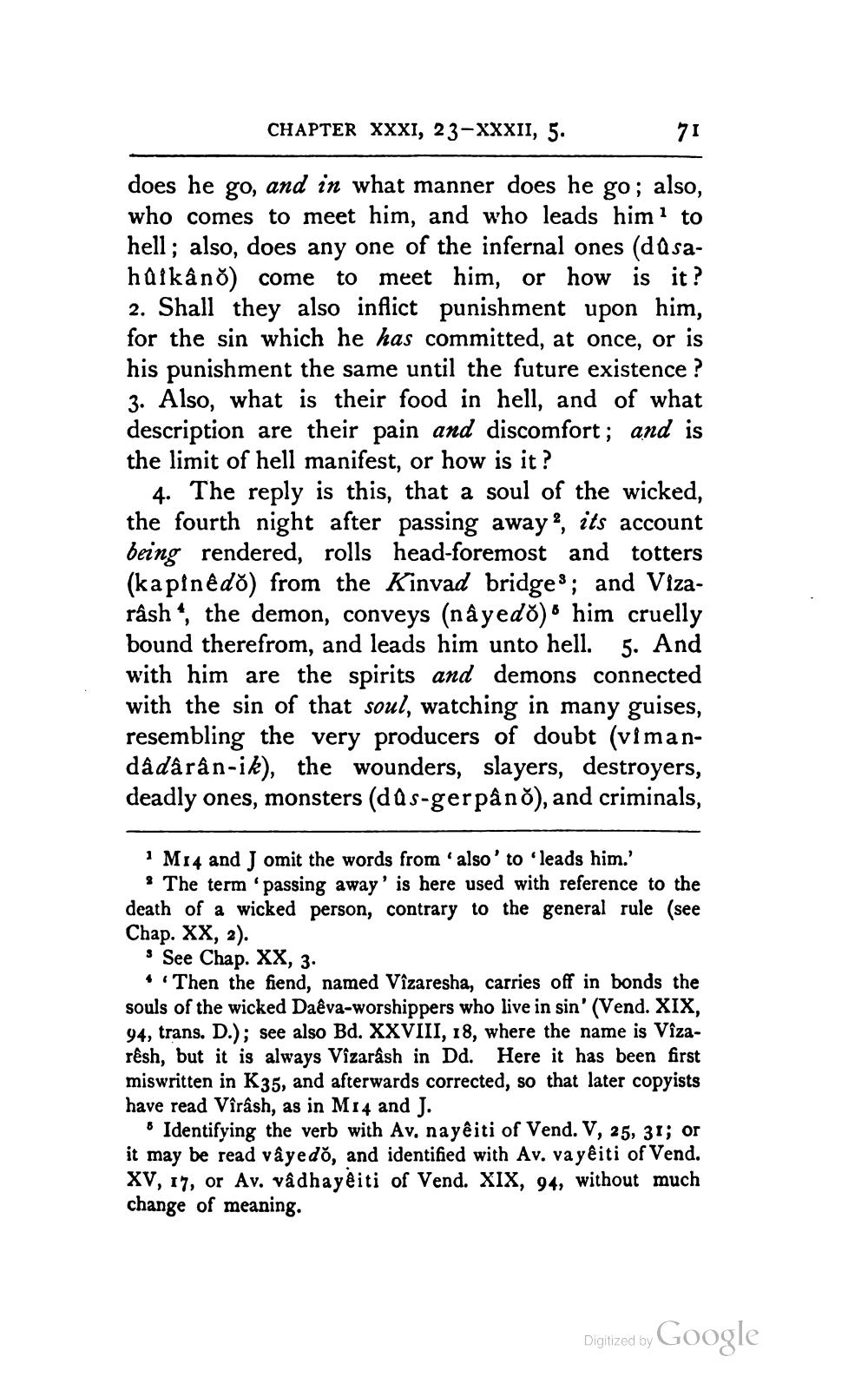________________
CHAPTER XXXI, 23-XXXII, 5.
71
does he go, and in what manner does he go; also, who comes to meet him, and who leads him to hell; also, does any one of the infernal ones (da sahatkâně) come to meet him or how is it? 2. Shall they also inflict punishment upon him, for the sin which he has committed, at once, or is his punishment the same until the future existence ? 3. Also, what is their food in hell, and of what description are their pain and discomfort; and is the limit of hell manifest, or how is it?
4. The reply is this, that a soul of the wicked, the fourth night after passing away ?, its account being rendered, rolls head-foremost and totters (kapinêdo) from the Kinvad bridges; and Vizarâsh“, the demon, conveys (nâ yedo) him cruelly bound therefrom, and leads him unto hell. 5. And with him are the spirits and demons connected with the sin of that soul, watching in many guises, resembling the very producers of doubt (vimandâdârân-ik), the wounders, slayers, destroyers, deadly ones, monsters (das-gerpâno), and criminals,
1 M14 and J omit the words from also' to 'leads him.'
The term 'passing away' is here used with reference to the death of a wicked person, contrary to the general rule (see Chap. XX, 2).
s See Chap. XX, 3.
• Then the fiend, named Vîzaresha, carries off in bonds the souls of the wicked Daêva-worshippers who live in sin' (Vend. XIX, 94, trans. D.); see also Bd. XXVIII, 18, where the name is Vizarêsh, but it is always Vizarash in Dd. Here it has been first miswritten in K35, and afterwards corrected, so that later copyists have read Vîrâsh, as in M14 and J.
• Identifying the verb with Av, na yêiti of Vend. V, 25, 31; or it may be read vâyedo, and identified with Av. va yêiti of Vend. XV, 17, or Av. vâdhayêiti of Vend. XIX, 94, without much change of meaning.
Digitized by Google




